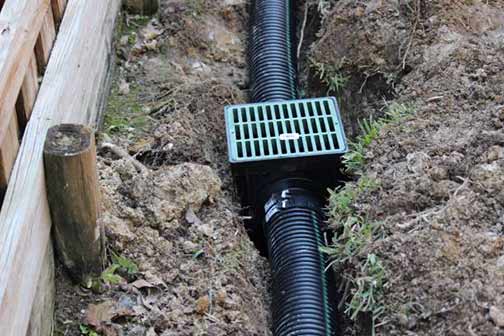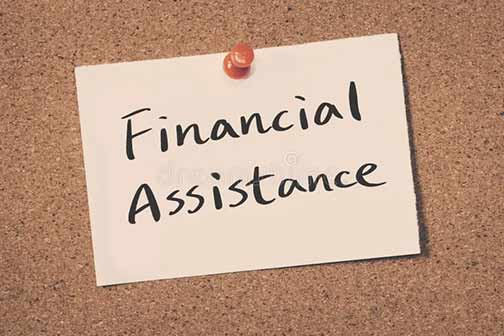
Flooding is a significant issue that affects many regions globally, and Illinois is no exception. The state experiences frequent flooding, especially in certain areas, which poses numerous challenges to residential and commercial plumbing systems. Understanding these challenges and identifying effective solutions is crucial for maintaining the integrity of plumbing infrastructure and ensuring the safety and well-being of residents.
Understanding the Impact of Flooding on Plumbing Systems
Flooding can have a profound impact on plumbing systems, disrupting their functionality and causing extensive damage. The influx of water can lead to blockages, contamination, and structural damage, all of which require prompt and effective intervention. In Illinois, the combination of heavy rainfall, snowmelt, and inadequate drainage systems exacerbates the risk of flooding, making it a recurring concern for homeowners and businesses alike.
Common Plumbing Issues Caused by Flooding
Blocked Drains and Sewage Backups
One of the most common plumbing issues caused by flooding is blocked drains and sewage backups. When floodwaters infiltrate the drainage system, they can carry debris, silt, and other materials that clog pipes and obstruct the flow of wastewater. This can result in sewage backups, which pose serious health risks and require immediate attention to prevent further damage.
Contaminated Water Supply
Floodwaters often contain various contaminants, including bacteria, chemicals, and other hazardous substances. When these contaminants enter the plumbing system, they can compromise the quality of the water supply, making it unsafe for consumption and use. Ensuring the purity of the water supply is essential to protect public health and prevent waterborne diseases.
Structural Damage to Pipes and Fixtures
The force of floodwaters can cause significant structural damage to pipes and fixtures. This includes cracks, breaks, and dislodged connections, all of which can lead to leaks and water damage. Addressing these issues requires thorough inspection and repair to restore the integrity of the plumbing system and prevent further complications.
Increased Pressure on Drainage Systems
Flooding can place increased pressure on drainage systems, overwhelming their capacity and leading to overflow and damage. The additional volume of water can strain pipes, causing them to burst or leak. Proper maintenance and upgrades to drainage infrastructure are necessary to manage the increased demand and mitigate the risk of flooding-related damage.

Implementing French drains and other protective measures can help prevent floodwaters from entering properties and causing damage to plumbing systems.
Preventative Measures and Solutions
Regular Maintenance and Inspection
Regular maintenance and inspection of plumbing systems are essential to identify and address potential issues before they escalate. This includes checking for blockages, leaks, and structural damage, as well as ensuring that drainage systems are functioning correctly. Routine maintenance can help prevent flooding-related problems and extend the lifespan of plumbing infrastructure.
Installing Backwater Valves
Backwater valves are an effective solution to prevent sewage backup emergencies during flooding. These valves are installed in the main sewer line and automatically close when water flows back into the system, preventing sewage from entering the property. Installing backwater valves can provide peace of mind and protect against the damaging effects of sewage backups.
Upgrading Drainage Systems
Upgrading drainage systems to handle increased water volumes is crucial in flood-prone areas. This may involve installing larger pipes, adding additional drainage channels, and improving the overall design of the system to enhance its capacity and efficiency. Investing in drainage upgrades can significantly reduce the risk of flooding-related plumbing issues.
Implementing French Drains and Other Protective Measures
Implementing French drains and other protective measures can help prevent floodwaters from entering properties and causing damage to plumbing systems. This includes installing French drains, using sandbags, and other barriers around vulnerable areas, as well as ensuring that landscaping and grading are designed to direct water away from your home. These measures can provide an additional layer of protection against flooding.
Using Flood-Resistant Materials
Using flood-resistant materials in plumbing systems can help minimize damage during flooding. This includes selecting pipes, fixtures, and other components that are designed to withstand exposure to water and resist corrosion. By using durable materials, property owners can enhance the resilience of their plumbing systems and reduce the need for costly repairs.
Case Studies: Addressing Plumbing Challenges in Illinois
Residential Solutions in Flood-Prone Areas
In flood-prone areas of Illinois, many homeowners have implemented various solutions to address plumbing challenges. For example, some have installed flood control systems to remove excess water from basements and prevent flooding. Others have invested in backwater valves and upgraded drainage systems to protect their properties from sewage backups and water damage. These measures have proven effective in mitigating the impact of flooding on residential plumbing systems.
Commercial and Industrial Approaches
Commercial and industrial properties in Illinois face unique challenges when it comes to plumbing and flooding. To address these issues, many businesses have adopted comprehensive flood management plans that include regular maintenance, drainage upgrades, and the installation of protective barriers. Additionally, some companies have invested in advanced monitoring systems to detect potential issues early and respond promptly to prevent damage.

The state of Illinois and local governments have implemented various programs to support residents and businesses in managing plumbing challenges caused by flooding.
Government Initiatives and Support
State and Local Programs
The state of Illinois and local governments have implemented various programs to support residents and businesses in managing plumbing challenges caused by flooding. These programs include grants and financial assistance for flood mitigation projects, educational resources on best practices for flood prevention, and technical support for upgrading plumbing and drainage systems. By providing these resources, the government aims to enhance community resilience and reduce the impact of flooding on plumbing infrastructure.
Community Involvement and Collaboration
Community involvement and collaboration are essential in addressing plumbing challenges related to flooding. Local organizations, neighborhood associations, and residents can work together to identify vulnerable areas, share information on effective solutions, and advocate for necessary improvements to infrastructure. By fostering a sense of collective responsibility, communities can enhance their preparedness and resilience to flooding.
Future Outlook and Recommendations
Adapting to Climate Change
As climate change continues to influence weather patterns, the frequency and severity of flooding in Illinois are likely to increase. Adapting to these changes requires proactive measures, such as investing in resilient infrastructure, implementing sustainable drainage solutions, and promoting awareness of flood risks. By taking a forward-thinking approach, Illinois can better prepare for future challenges and protect its plumbing systems from the impact of flooding.
Innovative Technologies and Practices
Innovative technologies and practices play a crucial role in addressing plumbing challenges related to flooding. This includes the development of smart plumbing systems that can monitor and respond to potential issues in real-time, as well as the use of advanced materials and construction techniques to enhance the durability of plumbing infrastructure. Embracing innovation can lead to more effective solutions and improved resilience to flooding.
To Conclude
Flooding poses significant challenges to plumbing systems in Illinois, but with the right strategies and solutions, it is possible to mitigate these issues and protect properties from damage. Regular maintenance, upgrades to drainage systems, and the implementation of protective measures are essential steps in addressing plumbing challenges caused by flooding. By working together and embracing innovative approaches, residents, businesses, and government agencies can enhance the resilience of plumbing infrastructure and ensure the safety and well-being of communities in Illinois.